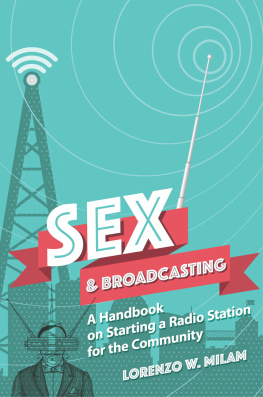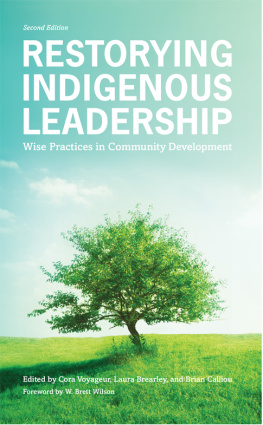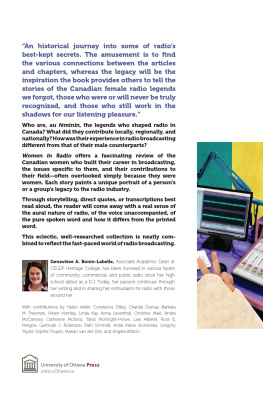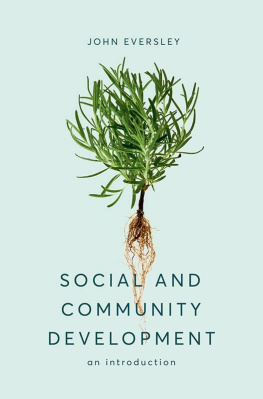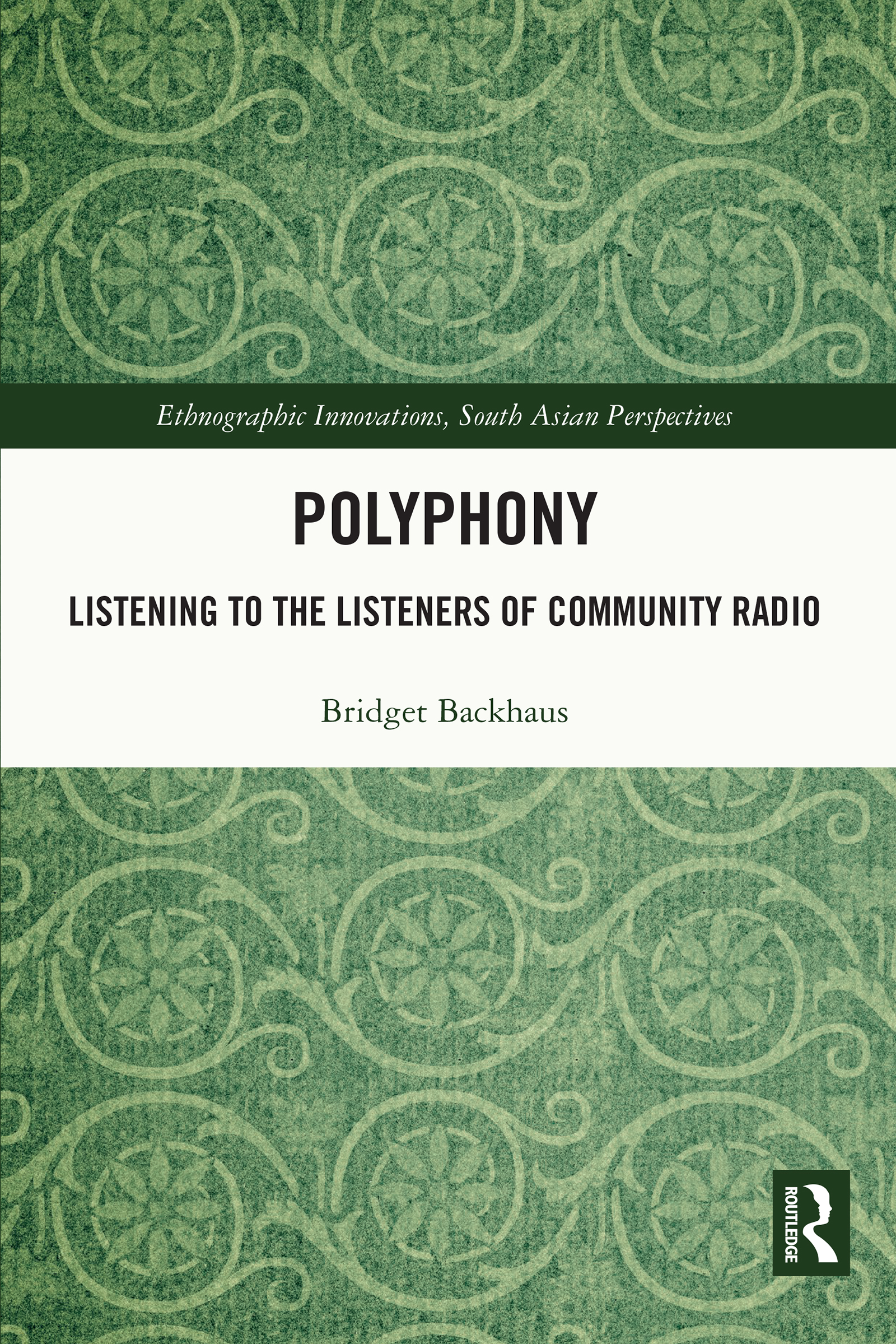
Table of Contents
Guide
Pages
Polyphony
This book looks at the rich and complex history of broadcasting and community broadcasting in the multicultural and multilingual milieu in India. It explores the world of community radio and how community radio broadcasters hear and speak to their audiences under the overarching theme of polyphony.
The book discusses the socio-historical contexts which allowed community radio to thrive in India. It highlights its potential to create alternative spaces of representation, and opportunity and its importance in preserving and disseminating local knowledge and traditions. The author weaves together ethnographic research and literature, as well as personal narratives and stories of those involved in the field. Further, the monograph critically examines the impact of development agendas on community projects and processes, discussing in detail the pervasiveness of the development discourse in every aspect of community radio and how it manifests on air. It also illustrates the limitations of community radio, within the context of its participation in the spectacle of development.
Accessible and deeply insightful, this book will be of interest to researchers and students of cultural studies, sociology, social anthropology, media and communication studies, and South Asian studies.
Bridget Backhaus is a lecturer in journalism and communications in the School of Humanities, Languages and Social Science at Griffith University, Australia. She is a member of the Griffith Centre for Social and Cultural Research and holds a PhD from Loughborough University London. Her research explores the role of community radio in social change with particular focus on issues of voice, listening, identity, and participation.
ETHNOGRAPHIC INNOVATIONS, SOUTH ASIAN PERSPECTIVES
Series Editor: Niharika Banerjea, Associate Professor, Ambedkar University Delhi; Paul BoyceSenior Lecturer, University of Sussex and Rohit K. Dasgupta,Senior Lecturer, Loughborough University
The book series Ethnographic Innovations, South Asian Perspectives (EISAP) will offer a new writing space that will draw together work from across the social sciences and the humanities. The series will focus on ethnographic engagements within and across disciplines and creative styles. Our intention is to engender a publishing environment for interdisciplinary conversations that query various uses of ethnography as a methodological and representational form in the context of South Asia and beyond.
This will include a focus on ethnographic theorization and method at inter-sections of public policy and private lives. Our aim is to open new perspectives on how the intimate contextualization of ethnographic knowledge might translate into engagements with civil society and modes of governance. The series will also offer a space for questioning factual modes of ethnographic narration and evidencing in respect of work that proffers fictional forms and counter-truth claims. Connections and divergences between new media, digital intimacies and analogic life-worlds will comprise another key focus along with new scholarship that extends the legacies of South Asian scholarship on caste, class and race into new conversations with queer, race and sexualities theories. In doing so the series aims to bring about new ethnographic engagements with life making projects in their relation to social theory and regional epistemologies and geographies.
POLYPHONY
Listening to the Listeners of Community Radio
Bridget Backhaus
For more information about this series, please visit: www.routledge.com/Ethnographic-Innovations-South-Asian-Perspective/book-series/EISAP
First published 2022
by Routledge
2 Park Square, Milton Park, Abingdon, Oxon OX14 4RN
and by Routledge
605 Third Avenue, New York, NY 10158
Routledge is an imprint of the Taylor & Francis Group, an informa business
2022 Bridget Backhaus
The right of Bridget Backhaus to be identified as author of this work has been asserted by her in accordance with sections 77 and 78 of the Copyright, Designs and Patents Act 1988.
All rights reserved. No part of this book may be reprinted or reproduced or utilised in any form or by any electronic, mechanical, or other means, now known or hereafter invented, including photocopying and recording, or in any information storage or retrieval system, without permission in writing from the publishers.
Trademark notice: Product or corporate names may be trademarks or registered trademarks, and are used only for identification and explanation without intent to infringe.
British Library Cataloguing-in-Publication Data
A catalogue record for this book is available from the British Library
Library of Congress Cataloging-in-Publication Data
Names: Backhaus, Bridget, author.
Title: Polyphony : listening to the listeners of community radio / Bridget Backhaus.
Description: Abingdon, Oxon ; New York, NY : Routledge, 2021. | Includes bibliographical references and index.
Identifiers: LCCN 2021004773 (print) | LCCN 2021004774 (ebook) | ISBN 9780367535865 (hardcover) | ISBN 9781032043791 (paperback) | ISBN 9781003191285 (ebook)
Subjects: LCSH: Community radio--India. | Radio audiences--India. | Radio broadcasting--Social aspects--India.
Classification: LCC HE8697.95.I4 B33 2021 (print) | LCC HE8697.95.I4 (ebook) | DDC 384.540954--dc23
LC record available at https://lccn.loc.gov/2021004773
LC ebook record available at https://lccn.loc.gov/2021004774
ISBN: 978-0-367-53586-5 (hbk)
ISBN: 978-1-032-04379-1 (pbk)
ISBN: 978-1-003-19128-5 (ebk)
Typeset in Sabon
by SPi Global, India
To community radio warriors everywhere.
I am truly indebted to those who have helped me throughout my research. If it takes a village to raise a child, it certainly takes at least a few neighbourhoods to write a book. My endless thanks must go to the inhabitants of those neighbourhoods, spanning academic disciplines, countries and time zones. None of this would have been possible without all of you.
First and foremost, my most sincere thanks and appreciation go to the community radio stations who hosted me and this research. It was an immense privilege to be able to spend time there and learn more about the incredible work taking place. I was welcomed with warmth and generosity, and for this I am truly grateful. I spend much of the early chapters of this book talking about how community radio stations are different everywhere and this is true, but what all stations seem to have in common regardless of where they are is a sense of belonging. Thank you for sharing that with me.
Thank you especially to my radio station Akkas. They both were the beating hearts of their stations, as well as the brains and the legs. This book is for you. The tough women of the rural community radio stations in India.
I am profoundly grateful for the support and guidance of a host of academic mentors who have helped me throughout this journey. Thank you to Professor Jo Tacchi who provided so much advice and guidance at crucial stages throughout this research and whose work continues to inspire and challenge me. Thank you to Dr Rohit Dasgupta for believing in my work beyond the confines of PhD candidacy and for giving me this incredible opportunity. At the risk of staining these opening pages with saccharine nostalgia, its always been my dream to write a book and you made that happen. Thank you.
For providing invaluable feedback on my work at critical stages, Id like to thank Professor Thomas Tufte, Dr Rico Lie, Professor Nico Carpentier, Dr Aswin Punathambekar, and Dr R Sreedher.
Next page

